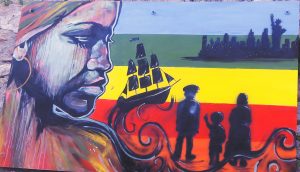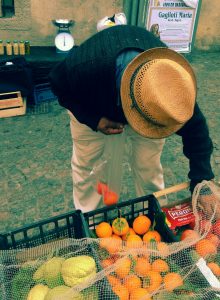Gender and Migration. Workshop@University of Calabria
Aleksandra Kubiak from Barka IE took part in a 5-day training on gender equality issues in the context of migration. Workshop which included lectures at the University of Calabria and study visits in a camp for refugees.
October 16,Sunday
Teatro dell’Acuqario- project assessment. Introduction to the project and discussion about desirable outcomes.
October 17,Monday
University of Calabria. Intercultural dialogue. Meeting Association La Kasbah (professor Enza Papa). Methodological issue. Lecture followed by discussion on the topic.
Intercultural dialogue is essentially the exchange of views and opinions between different cultures. Unlike multiculturalism, where the focus is on the preservation of separate cultures, intercultural dialogue seeks to establish linkages and common ground between different cultures, communities and people, promoting understanding and interaction.
University of Calabria. Migrants and refugees in Italy and in Calabria (professor Maia Francesca D’Agostino). Lecture on the topic of migrants and refugees issue in Italy.
October 18,Tuesday
University of Calabria. Gender and migration. Theoretical aspect and methodological issue (professor Sabrian Garofalo and Stefania Salvino). Lecture followed by discussion on the topic.
In approximately three decades, gender and migration scholarship has moved from a few studiest hat included women immigrants or included gender as a dichotomous variable to a burgeoning literature that has made significant contributions to understanding numerous aspects of the migration experience. The larger field of migration studies, however, has not yet fully embraced feminist migration analysis and theory
Meeting with migrant/refugees organization Cosenza (Calabria)
October 19,Wednesday
University of Calabria. Gender and migration. Interviewing migrants women (Elena Musolino and Valentina Fedele). Listening to the numbers of the interviews of migrants/refugees women and discussing the problems that migrants/refugees women are experience in the receiving country.
Women who immigrate to Europe in the 21st century come in search of economic opportunity, to join family members, or as asylum seekers and refugees. They arrive through legal channels or can be unauthorized; they migrate voluntarily or can be forced to migrate; and some are victims of human trafficking or other forms of exploitation.
October 20,Thursday
Day in Riace, a small village in Calabria. Riace is widely described in the media as the village where migrants are welcome. It all started in 1998, when a boatload of 300 Kurdish refugees arrived on the local shore. One man sat up Citta Futura ( town of the future) with the ambition to both help refugees and revive what was then a dying rural village. That mam later become mayor:Domenico Lucano, whom everyone affectionately calls Mimmo Lucano. Taking refugees allowed the village to preserve basic services such as school, but also shops and business that had virtually disappeared, Lucano said: “The arrival of these people fueled dynamics that create hope. For the people who arrived, but also for the people here”




